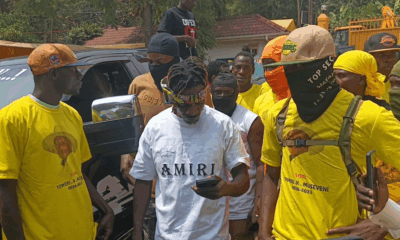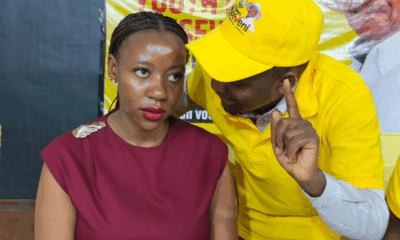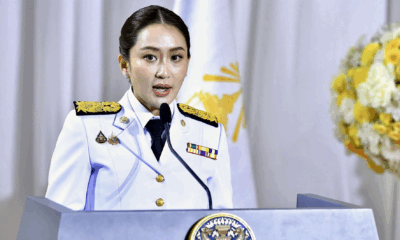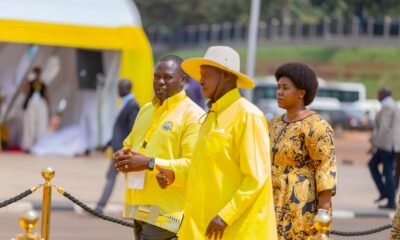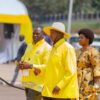Analysis
Undynamic M7 wants the UN to democratize
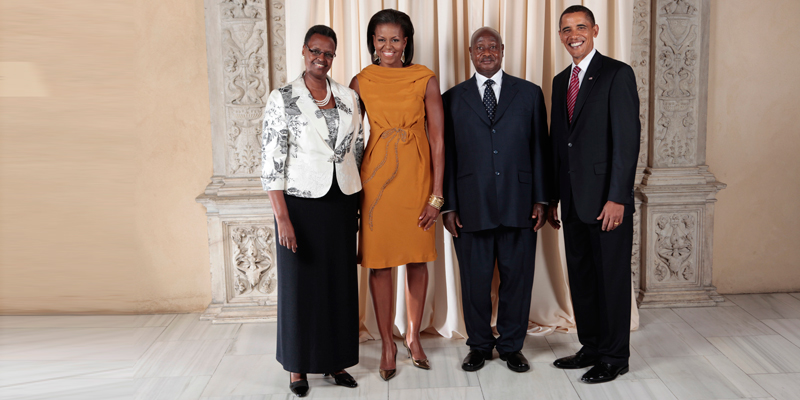
President Barack Obama and First Lady Michelle Obama pose for a photo during a reception at the Metropolitan Museum in New York with H.E. Yoweri Kaguta Museveni, President of the Republic of Uganda, and Mrs. Museveni, Wednesday, Sept. 23, 2009. (Official White House Photo by Lawrence Jackson)
President Yoweri Museveni delivered blistering criticism of the United Nations a fortnight ago particularly attacking its Security Council for failing to change with the times, even as its members have evolved during the 70-year history of the global body.
In a keynote address to the United Nations on its 70th anniversary in New York, Museveni said the UN Security Council had sidelined other countries in peace and security operations at the expense of millions of lives mostly in Africa.
Museveni was speaking on the topic: “Strengthening Cooperation Between the United Nations and Regional and Sub-regional Organisations,” a subject on which Museveni has built strong reputation as an expert.
Museveni argued that whereas the UN Charter provides for cooperation between the UN and Regional Organizations, the UN security council has often sidelined the advice of regional bodies such as the African Union.
Museveni said: “The crucial decisions of international peace and security, within the Security Council, are mostly taken by the veto-wielding members. This is a big mistake and has already caused a lot of harm to Africa, like in the case of Libya where Africa’s opinion was ignored; hence, the present massive human haemorrhage in that area.”
Museveni’s highly publicised critique of the UN system has attracted mixed reactions from across the country and the region.
Some have hailed Museveni for standing up against the chauvinism and domination propagated by Western countries against lesser developed but more populated countries.
But others have rubbished the president’s views as idle talk and inconsequential especially in view of the fact that he has made similar comments without eking a response from the global powers.
Godber Tumushabe, the Executive Director of the Greatlakes Institute for Good Governance argued that Museveni’s comments are simply predictable. :
“I actually think President Museveni’s views are both predictable and misplaced. It is characteristic of all African strongmen to find someone to blame for their problems. Museveni is behaving so much like Mugabe. That Zimbabwe’s problems are not caused by Mugabe’s misrule but by the British who left some years ago.”
Tumushabe argues that Museveni tactically picks on Libya as a scapegoat and avoids naming other crises on the African continent where dictatorship and miss rule has led to unrest and war.
He said: “President Museveni blames the West for the crisis in Libya and doesn’t accept that the conditions for the crisis were build by Gadaffi’s dictatorship. How come he doesn’t refer to Egypt or Tunisia. Did the African Union try to solve the problems there as well?”
Perhaps more importantly is the fact that, critics point out, that Museveni makes the mistake to talk about pluralism and diversity of opinion at the global level when he cannot apply the same principles locally for his people.
President Museveni came to power through use of force almost thirty years ago. Over the past three decades of his rule, Museveni has constantly changed goal posts on governance by abusing the very principles he said took him to the bush, such as rule of law and dictatorship.
In 2005, his government bribed Members of Parliament to change the Constitution by removing the two-term provision for President which effectively removed any obstacles to boundless rule.
His government is also accused by the opposition and civil society of violating basic human rights such as freedom of assembly and of expression.
Museveni’s critics argue that he gets not credit by appearing to care about the plight of poor people when he cannot provide basic social services for his people.
“What difference does it make for you to go and rumble at the UN when you cannot provide basic health care to your people, you can’t provide a quality education to your school children, later on give them lunch at school, or when you have a population dying of jiggers?”wonders Tumushabe.
Unlike his contemporaries, Museveni often uses his rhetoric and charm to disarm criticism especially from western media, to deflect concerns raised by ordinary people or the opposition in Uganda. But many agree that his long stay in power, poverty, corruption, and high unemployment obtaining locally, suggest he does not have moral authority to challenge anyone when it comes to good governance.
Comments



